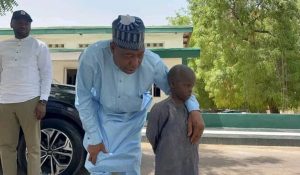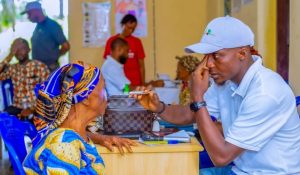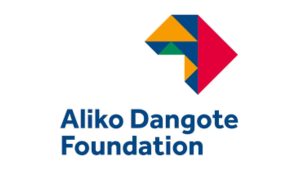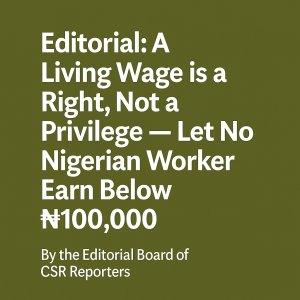
EXCLUSIVE! Africa still has chances of achieving SDG 2030 – US-based researcher, Fatimah Bolarinwa
Fatimah Bolarinwa is an expert in the field of economics, currently pursuing her Ph.D. in Econometrics and Quantitative Economics at the University of Delaware. Specializing in sustainability, Fatimah is deeply engaged in research studies that explore proficient ways Africa can become a global colossus when it comes to sustainability via climate change policies implementation and sustainable resource management.
The US researcher speaks exclusively to CSR Reporters in this interview. Excerpts:
Tell us about yourself?
My name is Fatimah Bolarinwa. Currently, I am Ph.D student in the US and a Graduate Research Assistant at the University of Delaware. I have been collaborating with leading economists to quantify the benefits of adopting renewable energy sources in urban environments. My research is not only academically rigorous but also aimed at practical applications, seeking to inform policymakers on effective strategies to balance economic growth with environmental sustainability. Professionally, I am an active member of the Association of Environmental and Resource Economists, where I help organize events and speaking series that bring together students, academics and professionals to discuss pressing economic issues as they affect our continent. I also volunteer my time to mentor undergraduates, sharing insights from my academic journey and encouraging them to pursue careers in economics. Looking forward, I am committed to contributing to global sustainability efforts through my groundbreaking research works and hopes to influence public policy by providing evidence-based solutions to key environmental challenges in the world and Africa in particular. Before beginning my doctoral studies, I earned a Master’s degree in Economics from the University of Geeenwich, where I graduated with a distinction. For publication, I have done a lot. I have published several publications in peer-reviewed journals and done presentations at many notable conferences.
Let’s talk about the much-vaunted Sustainable Development Goals, 2030. Do you think African governments are on the right track since the deadline is just a few years away?
Though Africa as a continent has made significant progress towards achieving the SDGs, the myriad of socio-economic challenges across the continent still pose hitches in hitting the targets. The drawbacks are there staring at us in the face. So achieving the SDGs in 2030 is a lofty one and requires us to intensify our efforts overnight in every area if we are serious in getting it done. If African governments should start now to invest in good governance; bring in the right infrastructure in education, healthcare, environment and secure strategic international cooperation, aid and financial resources –a lot of work to be done really but if we are able to put systems in place, we just might achieve the SDG 2030 goals and hit their targets. To play the optimist: It is possible! Yes, we can!
In recent times, many African governments seem tantalized to bring back military regime as a choice of doing things. We heard uprisings in countries like Burkina Fasso, Niger Republic, Mali etc. If we continue to disintegrate and disagree on the fact that true democracy is what we need to make any headway sustainability-wise, do you REALLY think Africa will ever hit this bull’s eye, called SDG in 2030?
Without mincing words, I still believe that it is achievable if we put our hearts to it. besides, not every African government is aboard the military rule bandwagon. That means we still have hope. The drawback remains the right systems in place. If our government should wake up and work overnight, not only will some of the targets be achieved but the entire essence of SDG 2030 will be realised. It is no rocket science. The call to action is a clear one – to end poverty and inequality, protect the planet and ensure that all people enjoy health, justice and prosperity, ensuring that no one or nothing is left behind.
Experts in sustainability development like you should also assist in policy formulation for systems to work effectively. Do you think it is okay to bring on board, a legislation that requires corporate organisations to report their sustainability operations?
Yes! I subscribe to this. The fear of the law will be the beginning of wisdom here. And humans tend to relapse to the state of anarchy when responsibility is not matched with ‘statutoriness.’make it a law and you see these goals worked on with the immediacy that they deserve. Have you imagined what will happen to a corporate organisation listed in the Nigerian Stock Exchange if it fails to oblige the Security and Exchange Commission, its own requirements? That’s the spirit! If we make sustainable reporting obligatory, businesses will begin to operate more sustainably and Mother Earth will be happy for it.
So you think bringing in a statutory angle to this all will be a Midas Touch?
Let me give you an example. There is a model called, Cup and Tray. I don’t know how much everyone knows about the cup and tray idea but this model demonstrates what we are talking about, perfectly. The cup just like the name is a limit to what each organisation can go. Therefore, a company cannot go over or perform below the set limit. That way, the goals will be achieved almost effortlessly.
Sometime ago, a Western corporation pledged Four Hundred Million dollars to wrestle climate change annually. But the organisation did not fulfill the promise and so many others like that and no one is holding them accountable. How long do we go on like this?
We have to begin to hold them accountable. There has to be accountability systems in these things, this time around. There have to be punishments and rewards. This particular topic affects all of us in general. If a particular country or corporate fails to achieve set goals such as the SDG in the stipulated time of 20230, they have to be punished for it. But it is about putting the structures in place if we must have the needed seriousness in Environmental, social and governance (ESG) in general.
The observation is that companies tilt towards greenwashing more than they actually implement the planned programmes of actions. Why is that so?
That’s very correct. It has always been more rhetorics, little or no action. They say they are doing a lot but with very little to show for it. They need to begin to provide us with the numbers; they need to begin to provide us with the facts. If possible, take us on a facility tour to see first- hand, what they claim to have done. Enough of claims! Therefore, to churn greenwashing, every report on ESG, DEI, CSR and sustainability in general will have to be concretised, demonstrated and evidence-based.
Let’s talk about the role of Non-governmental organizations. May non-profits in Africa are so much into profits this time around. It has become business for them thereby forgetting their original noble calling of filling in the gaps where governments fall short. What’s really going on?
In fact, some of them have been accused of embezzlement and money- laundering and we see them do these things really. Unscathed! The question on a concerned lips like yours, therefore, becomes, what is government and our law enforcement agencies doing about this? This is because we also can’t allow them to turn what was supposed to be the only way out to a fully-fledged money-making venture. They need to be called out and shamed. They need to know the implications of what they are doing. They need to be exposed to the public so the donors can begin to know them by face.
When we talk about sustainability and CSR, you can take it away from the fact that government that is supposed to hold the corporate sector account is actually perceived as corrupt. What do you think about corruption in Africa and in Nigeria in particular?
Corruption in Africa remains one of the biggest problem, bedeviling the continent from the get go. But if we can strive to get corruption out of the way, Nigeria and Africa in general will be in a better place. Sometimes I feel like taking this corruption menace personally, wrestle it myself and prune it out of the way for good. Sad.
We know you do a lot of sustainability gigs. Please tell us. What impact, do you think your works and efforts have been yielding among young people across Africa?
Very well! My passion has always been to integrate sustainable development goals through economic frameworks. Here in the US, my research thesis is on econometrics so I use advanced economic models to evaluate the obligations we have in Africa and see how we can put it. So I have been doing so much in the areas of SDGs through economic frameworks. These include promoting sustainability agricultural practices in the agritech subsector; enhancing the efficiency of the food supply chain as well as emphasising the importance of sustainability in business strategies.
Thank you so much Fatimah Bolarinwa.









